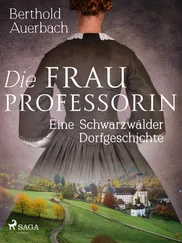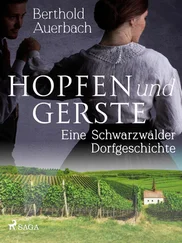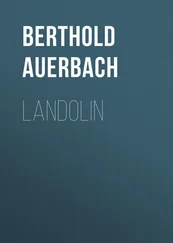Berthold Auerbach - Waldfried - A Novel
Здесь есть возможность читать онлайн «Berthold Auerbach - Waldfried - A Novel» — ознакомительный отрывок электронной книги совершенно бесплатно, а после прочтения отрывка купить полную версию. В некоторых случаях можно слушать аудио, скачать через торрент в формате fb2 и присутствует краткое содержание. ISBN: , Жанр: foreign_antique, foreign_prose, на английском языке. Описание произведения, (предисловие) а так же отзывы посетителей доступны на портале библиотеки ЛибКат.
- Название:Waldfried: A Novel
- Автор:
- Жанр:
- Год:неизвестен
- ISBN:http://www.gutenberg.org/ebooks/32446
- Рейтинг книги:3 / 5. Голосов: 1
-
Избранное:Добавить в избранное
- Отзывы:
-
Ваша оценка:
- 60
- 1
- 2
- 3
- 4
- 5
Waldfried: A Novel: краткое содержание, описание и аннотация
Предлагаем к чтению аннотацию, описание, краткое содержание или предисловие (зависит от того, что написал сам автор книги «Waldfried: A Novel»). Если вы не нашли необходимую информацию о книге — напишите в комментариях, мы постараемся отыскать её.
Waldfried: A Novel — читать онлайн ознакомительный отрывок
Ниже представлен текст книги, разбитый по страницам. Система сохранения места последней прочитанной страницы, позволяет с удобством читать онлайн бесплатно книгу «Waldfried: A Novel», без необходимости каждый раз заново искать на чём Вы остановились. Поставьте закладку, и сможете в любой момент перейти на страницу, на которой закончили чтение.
Интервал:
Закладка:
CHAPTER IX
Martella did not become attached to any one in the house except Rothfuss, whom she was constantly plying with questions about Ernst's childhood. When in pleasant evenings during the week, and on Sunday afternoons in clear weather, the youths and maidens would march through the village, with their merry songs, she would sit with Rothfuss on the bench by the stable, or, unattended by any companion save her dog, would be up in the woods that lay back of our house.
When she had any special request, she would communicate it through Rothfuss.
Among other things, she wanted to go out into the forest with the wood-cutters. From her thirteenth year she had wielded the axe, and could use it as cleverly as the men. We did not grant this wish of hers.
Her craving for knowledge was insatiable, and I marvelled at the patience and equanimity with which my wife told her everything she wanted to know.
Things to which we had become accustomed were to her occasions of the liveliest surprise. This did not seem to change, for she never could get used to what with us had, through daily habit, become a matter of course. To her all seemed a marvel.
Her glance was full of courage. Her voice seemed so full of sincerity, that her strangest utterances required no added assurance of their truthfulness. Her laughter was so hearty that it seemed contagious.
Rothfuss was quite proud that he could control Martella, just as he did the two bays that he had raised from the time they were foals, and delighted to speak of the fact, that our youngest-as he called Ernst-was the best of marksmen. He had secured the best prize. For there could be no other girl so wise and merry as Martella. And she was so full of merry capers that the very cows looked around and lowed, as if to say, "We, too, would be glad to laugh with you, if we only could. But, alas! we cannot. We have not the bellows to do it with."
She had named her calf "Muscat." She would nurse it as if it were a younger sister. She maintained that it was a perfect marvel of health and wisdom, and that the old cow was jealous, and tried to butt her because she had noticed that the calf had greater love for Martella than for its own mother.
There was one point on which she and Rothfuss always quarrelled. She had an inexplicable aversion to America, of which Rothfuss always spoke as if it were Paradise itself. The manner in which Lisbeth, the locksmith's widow, had been provided for, was his chief argument in its favor. "None but a free state would provide so well for the families of the men killed in battle. How different our Germans are about that."
Towards my wife and myself, Martella was respectful, but diffident.
Ernst came to us but twice during the summer, remaining but a few hours each time.
He wanted Martella to walk or drive around the neighborhood with him, but she refused, saying "that she would not leave home. She had been away long enough."
Ernst was evidently provoked that Martella refused to go with him, but kept his anger to himself.
In that summer, 1865, we had charming harvest weather, and I shall never forget Martella's saying, "I shall help gather the harvest. I was a gleaner once, and know that this is good weather for the farmers. To cut the ears in the morning and carry home the rich sheaves in the evening, without having had a storm during the day, is good for the farmer, but not so pleasant for the poor gleaner. Storms during the harvest time scatter the grain for the poor; for the farmers give nothing away of their own accord."
Rothfuss looked towards me, and nodded approval of her words.
Towards the end of summer, Richard paid us a visit.
Richard had written to us some time before, and had referred to Ernst's conduct in indignant terms. He felt shocked that one who had not yet secured a livelihood for himself, had already linked the fate of another with his own, and had inflicted her presence upon the household. But from the first moment that he saw Martella, he admired her more than any of us had done.
When he offered her his first brotherly greeting, she gazed at him with her brilliant eyes, and said,
"I can see ten years ahead."
"Have you the gift of prophecy?"
"Oh pshaw! I don't mean that. What I mean is that in ten years from now Ernst will look as you now do. But I hope that when that time comes, he will not have to use spectacles."
Richard laughed, and so did Martella quite heartily.
There is nothing better than when two people laugh together at their first meeting.
Later in the season, my daughter Johanna, who is the wife of a pastor in the Oberland who had once been Ludwig's teacher, came with her grown-up daughter to pay us a visit. Johanna's object in coming was to receive the benefit of the milk cure.
At their very first meeting, she unintentionally affronted Martella. Johanna always wore black silk netted gloves, and when, with too evident an air of assumed kindness, she offered her hand to Martella, the latter said to her:
"There is no need for a fly-net on your hand. I do not sting."
After this trifling circumstance, there was many a heart-burning between Martella and Johanna. They were always at cross purposes. Rothfuss was provoked, as he was unable to satisfy Martella that the pastor's wife had not intended to affront her. Martella refused to be convinced, and persisted in calling Johanna a "fly-net."
When she had once conceived an aversion for any one, she was immovable. And when Johanna came to the cow stables, which she did twice every day at milking-time, she would always in an ironical tone say, "Good-day, madam sister-in-law."
Johanna found in this a cause for continued ill-feeling, to which, in her discontented and susceptible condition, she readily gave way.
Johanna imagined that she had found the way to Martella's heart, by assuring her how much she pitied her. But that only served to make matters worse; for Martella resented any manifestation of pity.
As our household was conducted on a generous scale, there was much that, in Johanna's eyes, contrasted unpleasantly with her own home. She frequently alluded to the small pay her husband was earning, and often gave us cause to remember that he would have been advanced much more rapidly, if he had not been the son-in-law of a member of the party in opposition to the government. She, in fact, made no concealment of her belief that I was the cause of her husband's and her daughter's infirm health. If it were not that I was in such great disfavor with the government, they would long ago have been stationed in a more genial climate, and would thus have recovered their health.
She maintained that our mode of living was not pious enough, and thought it most atrocious that we indulged Martella in her heathenish ways.
She did not care to go to the village pastor, with whom we had but little intercourse, for she was angry at him. His position brought him little work but generous pay, and she therefore coveted it for her own husband. But then, the wife of our pastor happened to be the daughter of a member of the consistory, which, of course, explains the whole matter.
One peculiarity of Martella's afforded Johanna many an opportunity to read us homilies on our neglect of the child. No matter whether you did her a service or gave her a present, Martella never uttered a word of thanks.
I am unable to explain the trait. It may have been the result of the simple life of nature in which she had been reared.
My son Richard, who passed a portion of the autumn holidays with us, was of that opinion.
Richard had a way of laying aside his spectacles after he had been with us for a day or two, and getting along without them until the day of his departure. He thus, with every succeeding year, did much to strengthen his overtasked eyes. I think he used to put his spectacles in the keeping of Rothfuss, who would return them to him on the day he left home.
Читать дальшеИнтервал:
Закладка:
Похожие книги на «Waldfried: A Novel»
Представляем Вашему вниманию похожие книги на «Waldfried: A Novel» списком для выбора. Мы отобрали схожую по названию и смыслу литературу в надежде предоставить читателям больше вариантов отыскать новые, интересные, ещё непрочитанные произведения.
Обсуждение, отзывы о книге «Waldfried: A Novel» и просто собственные мнения читателей. Оставьте ваши комментарии, напишите, что Вы думаете о произведении, его смысле или главных героях. Укажите что конкретно понравилось, а что нет, и почему Вы так считаете.












